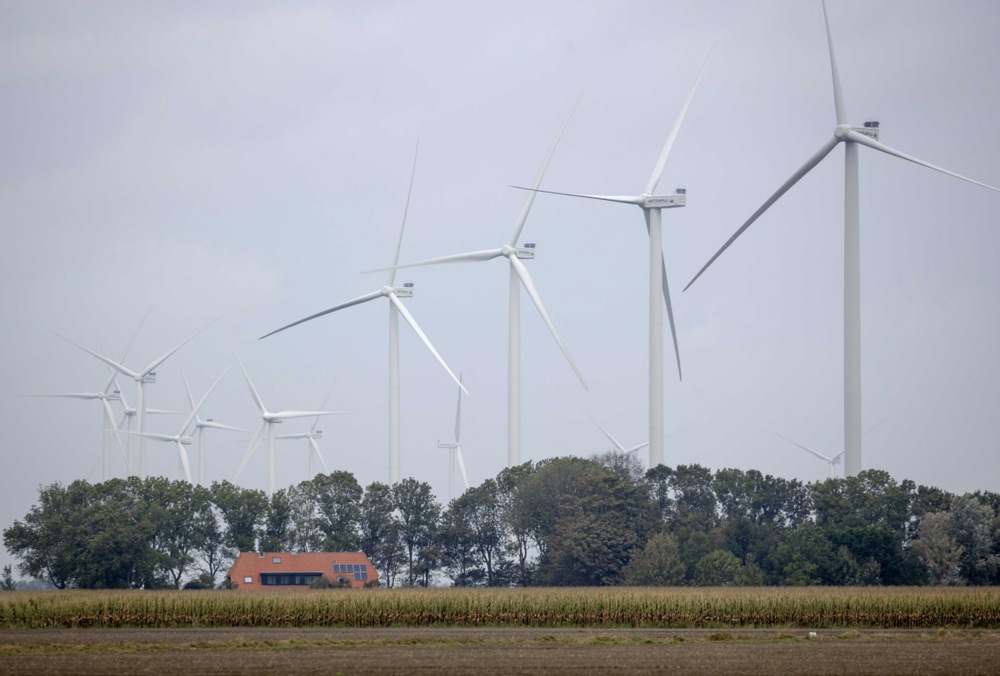What should have been one of the Netherlands’ most prestigious green projects has now become a painful loss for the Dutch government.
Energy giant Eneco has backed out of a tender for two giant Dutch wind farms, criticising government policy.
The current government’s approach to offshore wind is “not future-proof”, says the company, which is one of the leading investors in Dutch wind farms.
Eneco and its Norwegian partner had spent a year preparing for the project, which had ambitious aims to double the capacity of Dutch wind farm energy.
The two offshore wind farms were expected to generate four gigawatts of energy. The Dutch government’s energy transition plans aim to generate 21 gigawatts in offshore wind farms by 2030.
Renewable energy projects also faced “worsened conditions on the market”, including “high interest rates, high material costs and an uncertain electricity market”, said the company.
During initial phases of North Sea wind development, companies building wind farms benefited from substantial government subsidies.
However, as time went on, subsidies decreased, shifting the financial burden to investors who began to be expected to make payments to the government.
At the same time, government policy expected developers to comply with increased ecological standards and integrate more seamlessly into the surrounding energy infrastructure.
There are now “structural flaws in the current design of tenders for offshore wind”, argues Eneco.
Previously tenders had more qualitative criteria which were replaced with financial triggers, leading to governments giving tenders to the highest bidder, it says.
That bidder will in turn try to earn money back via energy bills.
At the same time, market conditions for offshore wind energy significantly worsened after general cost increases across the entire supply chain, and uncertainty around electricity prices and potential sales volumes.
High steel and copper prices, supplier shortages, and increased interest rates have all helped drive costs up.
Energy firms have no guarantees they can sell electricity at the right volumes and prices, which leads to a greater lack of capacity in the supply chain.
Meanwhile escalating demand, unmet due to the shortfall in production capacity, continues to drive up the price for consumers.
In addition, construction delays in construction could potentially cause significant penalties for operators.
Eneco wants to see a different form of tenders, which could address these problems better.
It argues for reinstating qualitative criteria, particularly focusing on ecology and system integration.
Additionally, it suggests incorporating electricity prices into the equation, giving an advantage to tenders that would provide energy at lower prices.
Eneco proposes finding ways to mitigate the impact of sudden price spikes, preventing project cancellations and spreading risks over time.
The energy transition revolves around electrification, says Eneco.
Green hydrogen is the best solution, particularly for the industrial sector, it says, but it argues the government’s policy is too ambiguous.
“The absence of a hydrogen demand policy results in uncertainty regarding demand volumes and the electrolysers’ ability to secure sufficient contracts for renewable hydrogen distribution,” says Eneco in a report.
“Moreover, the direct electrification of the industrial sector is progressing slowly, attributed to high grid tariffs and the lack of overarching electrification objectives guiding the process,” it adds.
Some of the suggestions made by Eneco include assigning smaller plots for tenders, to allow for more complexity in construction and grid development, and above above all, for governments to provide “structural and clear policy”.
The Ministry of Economic Affairs and Climate “understands that interest is waning due to rising costs”, a spokesman says.
The ministry expects fewer parties to bid compared to previously.





